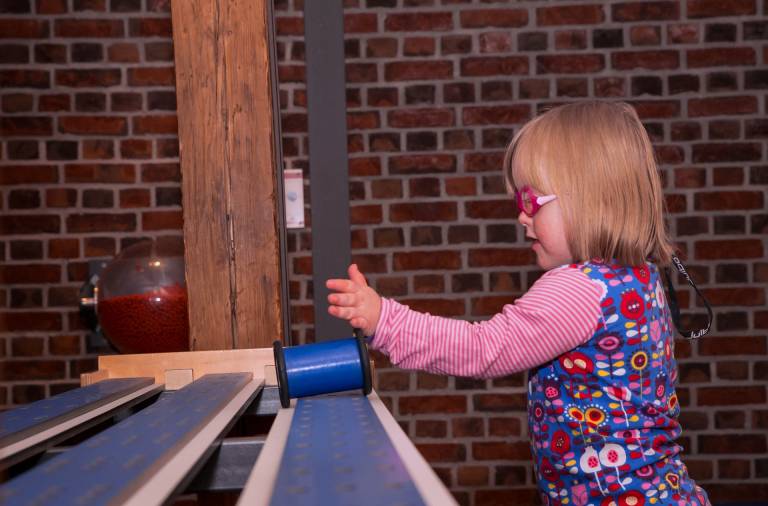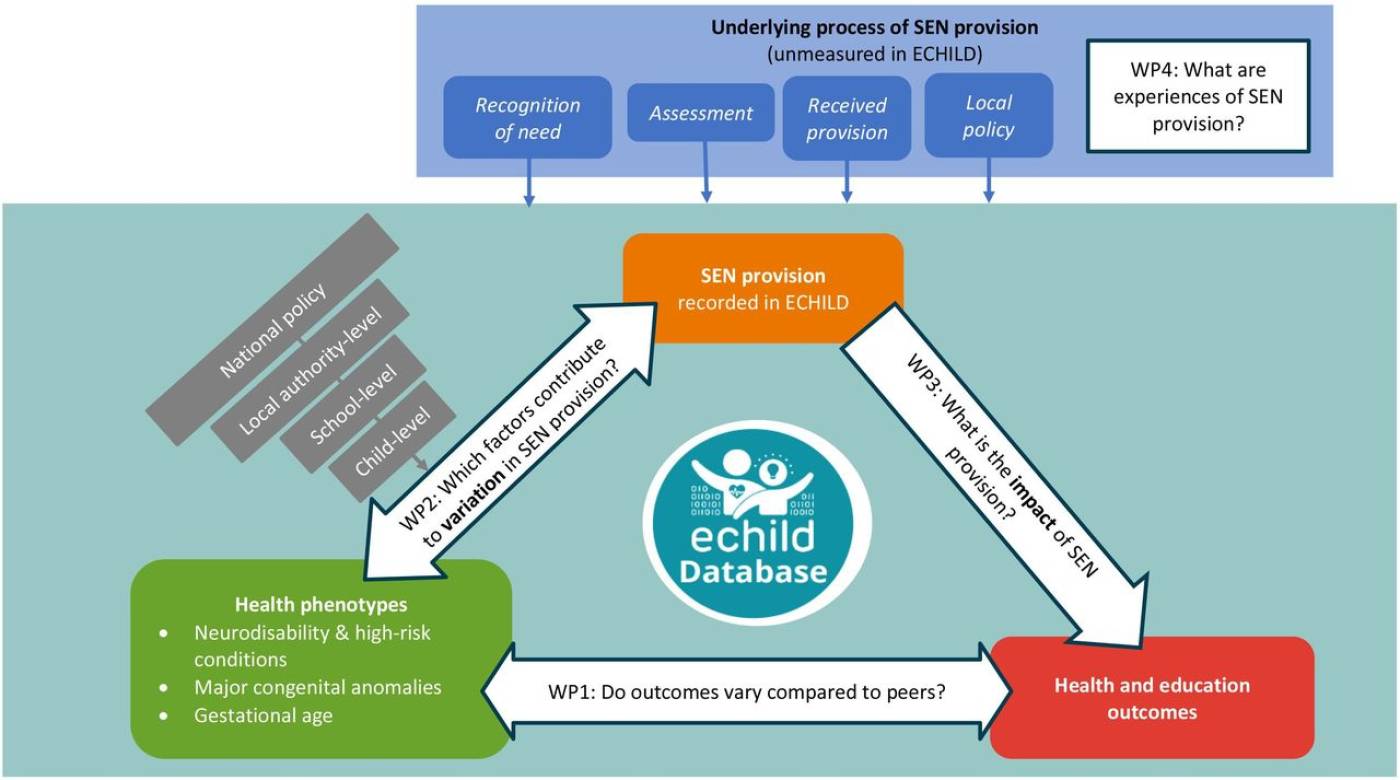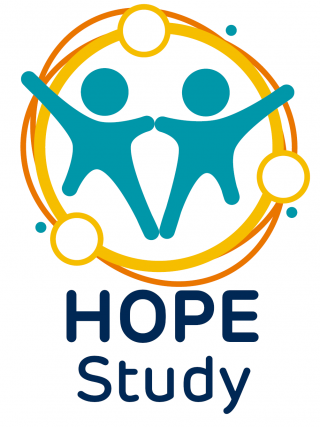What is the HOPE Study researching?
The HOPE Study (Health Outcomes of young People throughout Education) is a new study at UCL and is funded by the National Institute for Health Research Programme for Applied Health Research. The HOPE Study is investigating the impact of adjustments for special educational needs (SEN) on children’s health using linked education and hospital data for all children in England (the ECHILD database).

The HOPE Study aims to provide enduring public health benefits by establishing methods and tools for the ongoing evaluation, monitoring and improvement of SEN services for better health and wellbeing in children and young people.
The findings will enable policy makers, service providers and users to make evidence-informed decisions about the benefits of SEN provision for health and education, and which children benefit.
Why is this research needed?
The provision of special educational needs support (known as SEN) has declined over the last decade, which may have led to unmet need. We aim to find out whether lack of adequate SEN support to those who need it harms the health and development of children, and whether this increases demands on health care, as well as education and social care. Effective provision of SEN support means targeting support to those who need it. This study aims to provide evidence about the benefits of SEN provision and which children benefit from different types of support. Findings from HOPE will enable policy makers, service providers and families to make evidence-informed decisions about who might benefit from adjustments in school for children with SEN as services recovery from the COVID-19 pandemic.
The HOPE study will assess whether the intensity and duration of the type of support provided to children with additional needs improves health as well as participation in school activities, for example by reducing absence due to health difficulties. We will find out whether SEN provision leads to improved health, by measuring the number of hospital contacts or admissions in children with and without the level of SEN provision that would be expected for their health condition.
How is the research being carried out?
The HOPE Study will use diverse methodologies and involve young people, parents and practitioners. Our research methods will use the fact that SEN provision has not been evenly distributed across local authorities and the amount of provision has varied over time. This will make it possible to compare outcomes in children who received support with similar children who did not receive support for SEN. Different methods are being used to analyse how certain we can be that SEN provision causes a change in health outcomes. Four interlinked work packages within the HOPE Study will work on developing iteratively investigate and inform each other's findings throughout the programme.
Young people, parents and practitioners are key to this work. We thank the group of young people from FLARE, who decided what the study should be called. We will involve young people, parents and practitioners to develop the study and help us interpret our findings. Learn how you can get involved here: Get involved.

- Work package 1 - Do outcomes vary compared to peers?
In the first work package, we define a range of health phenotypes, that is, health conditions captured in Health Episode Statistics data that are expected to need SEN provision in primary school. We explore how health and education outcomes vary for children with different health phenotypes and compared with unaffected peers.
Methods: Systematic reviews and qualitative synthesis of stakeholder views to define key health indicators and outcomes; quantitative methods to define health indicators of need for SEN and outcomes and descriptive analyses of prognosis and risk factors associated with need for SEN provision.
- Work package 2 - Which factors contribute to variation in SEN provision?
In work package 2, we describe how child, social and area-level factors contribute to variation in SEN provision for children with similar health needs indicated using the phenotypes identified in work package 1. The findings help us understand the key drivers of variation in SEN provision to determine whether the impact of SEN provision (examined in work package 3) can be evaluated using natural policy experiment designs (eg, due to changes in policy over time).
Methods: Quantitative data analyses using multilevel regression models.
- Work package 3 - What is the impact of SEN provision?
In work package 3, we assess the impact of SEN provision on health and education outcomes for children with specific health phenotypes (defined in work package 1) considering timing, duration and level of provision. We bring together analyses using a range of causal inference methods to address possible biases arising from using observational data (such as unmeasured confounding or possible selection bias).
Methods: Quantitative data analyses using biostatistical and econometric causal methods to evaluate the impact of the timing and duration of SEND provision on specific groups and over an extended period; stakeholder involvement to inform prioritisation of target interventions and eligible groups
- Work package 4 - What are experiences of SEND provision?
The ECHILD database contains termly records indicating provision for SEN, but no information about whether or when any provision was actually received, its type or quality. This work package uses mixed methods to understand geographical variation in local policies and the underlying processes of identification, assessment and provision, and how these processes are experienced by families. Findings are compared, reconciled and summarised in a systems analysis. The final output will be metadata of indicators of timing and location of various policies and practices to be used in analyses in other work packages.
Methods: Qualitative evaluation of practices reported by stakeholders and service users and literature reviews; descriptive data analyses; systems analysis to integrate findings; quantitative methods to derive metadata combining linked hospital and education data for all children with information on variation in policies and local practices.
You can also read more about the HOPE study in the research protocol here:
Evaluation of variation in special educational needs provision and its impact on health and education using administrative records for England: umbrella protocol for a mixed-methods research programme:
https://bmjopen.bmj.com/content/13/11/e072531 (DOI: http://dx.doi.org/10.1136/bmjopen-2023-072531). November 2023.
 Close
Close



